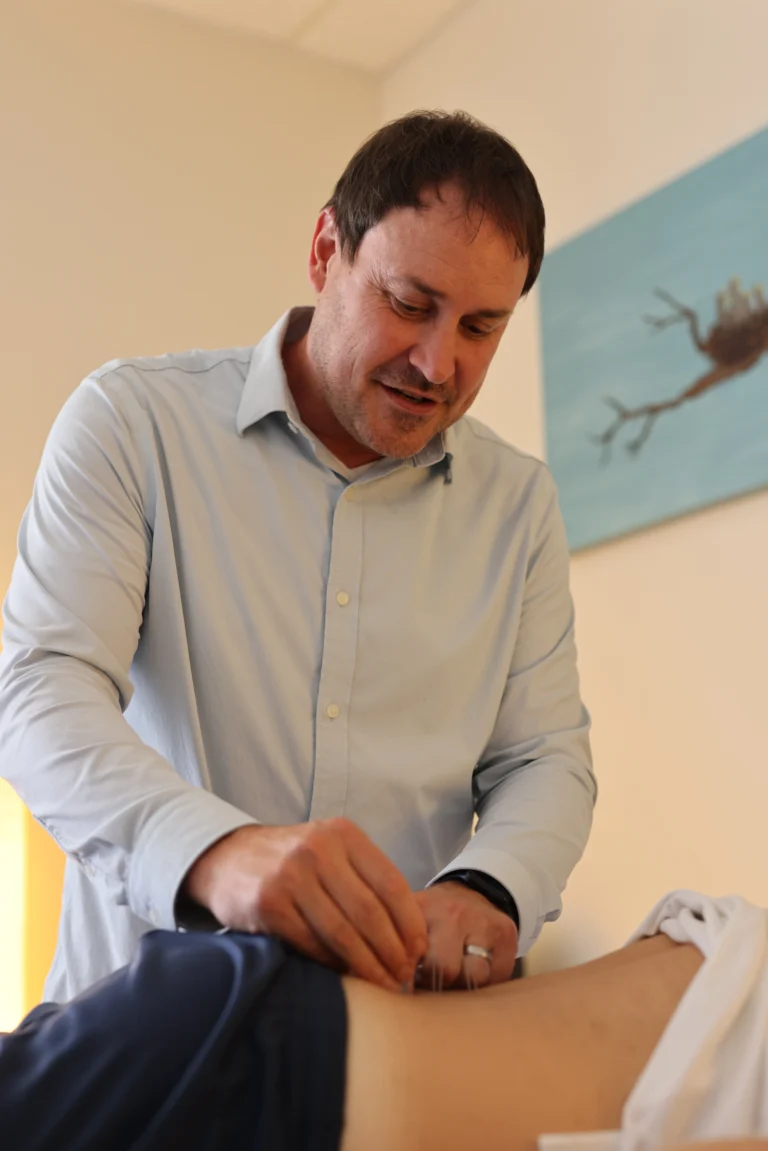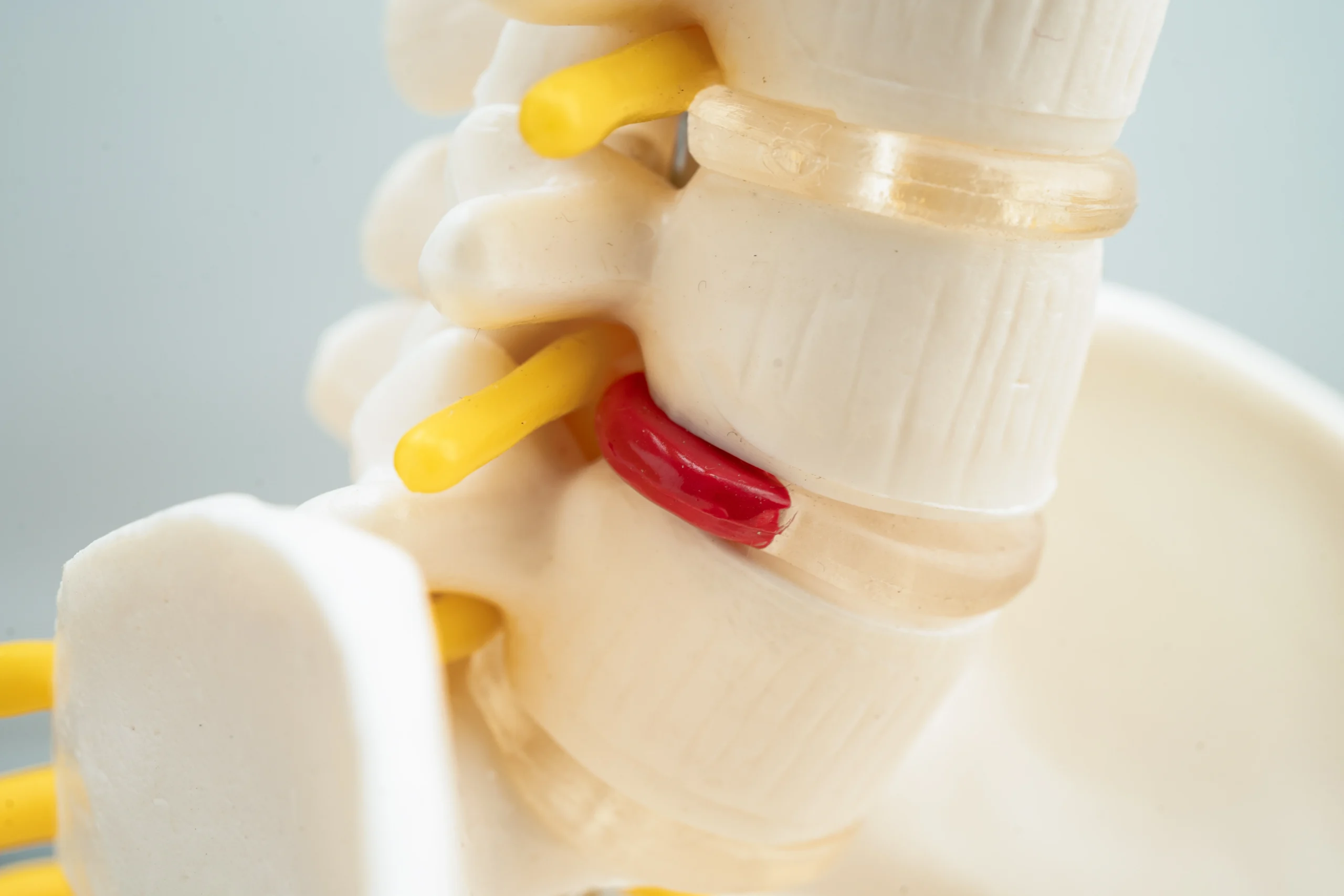Acupuncture for Herniated Lumbar Disc: Evidence, benefits and patient guidance
A herniated lumbar disc is one of the most common causes of chronic lower back pain, often radiating to the hips, buttocks, or legs (sciatica). It can significantly affect mobility, daily activities, and overall quality of life. While surgery or medications are common treatments, many patients seek complementary therapies that are effective yet less invasive.
Acupuncture, a key component of Traditional Chinese Medicine (TCM), has gained attention for its potential to relieve pain, reduce inflammation, and promote recovery — both in non-surgical cases and after lumbar disc surgery. Recent clinical studies provide compelling evidence supporting its role.
Relieving Disc Herniation with Acupuncture: A Blend of Ancient Wisdom and Modern Science
When it comes to treating a disc herniation, both acupuncture and conventional medicine aim for the same two goals: reducing inflammation and restoring healthy nerve function. In acupuncture, one of the most effective ways to do this is by targeting a special set of points along the spine called the Hua Tuo Jia Ji points.
These points are located just half a thumb’s width from the spine and sit right next to the spinal nerve roots—exactly where herniated discs often cause pain and irritation. Named after the famous Chinese physician Hua Tuo, who lived nearly 2,000 years ago, these points have been used for centuries to treat nerve and muscle problems. Today, modern imaging confirms just how anatomically important they are.
By gently stimulating these points with acupuncture needles, we can help calm irritated nerves, improve blood flow, and relax the deep muscles that often tighten up around an injured disc. Research featured in Sports Medicine Acupuncture (link to page) shows that this technique can “reset” these protective muscles, giving the nerves more room to breathe and heal.
This powerful approach blends time-tested acupuncture wisdom with modern sports medicine techniques—offering patients a natural, targeted way to relieve disc-related pain and support long-term recovery.
What the Research Says:
Acupuncture for Postoperative Pain Relief
A separate study at Nantong Hospital of Traditional Chinese Medicine recruited 110 patients recovering from lumbar disc surgery. Patients received either acupuncture or conventional care (medication and IV therapy).
Findings included:
- 96.36% total effective rate for acupuncture vs. 83.64% for conventional care.
- Faster pain relief and better mobility in the acupuncture group.
These results suggest acupuncture can be effective both as a primary treatment and as part of post-surgical rehabilitation.
Benefits Beyond Pain Relief
Acupuncture for herniated lumbar discs may offer:
- Reduced inflammation – measurable decreases in inflammatory cytokines.
- Improved mobility – greater ability to bend, lift legs, and walk without pain.
- Lower medication use – some patients report reduced reliance on painkillers.
- Holistic recovery – improved sleep, energy levels, and mood.

How Acupuncture Fits Into a Comprehensive Care Plan
While acupuncture can be effective on its own, combining it with other therapies often provides the best results:
- Physical therapy – targeted exercises to strengthen supporting muscles.
- Lifestyle modifications – maintaining proper posture, avoiding heavy lifting.
- Anti-inflammatory diet – supporting healing from within.
Always coordinate with your healthcare provider to ensure treatments work together safely.

Safety and Precautions
When performed by a licensed practitioner, acupuncture is generally safe. However:
- Avoid treatment if you have a skin infection at the needle site, uncontrolled bleeding disorders, or severe systemic illness.
- Pregnant patients should seek practitioners experienced in prenatal acupuncture.
- Ensure your acupuncturist uses single-use, sterile needles.

References
- HealthCMi – “Acupuncture Herniated Disc Pain Finding” (2018) http://www.healthcmi.com/Acupuncture-Continuing-Education-News/1863-acupuncture-herniated-disc-pain-finding
- Mayo Clinic – Sección de acupuntura y dolor de espalda: https://www.mayoclinic.org
- National Center for Complementary and Integrative Health (NCCIH) – Información sobre acupuntura y dolor: https://www.nccih.nih.gov
- Xia S. Acupuncture and Moxibustion in the Treatment of Postoperative Pain of Lumbar Disc Herniation for 55 Cases. Guangming Journal of Chinese Medicine. 2018.

